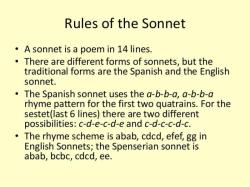What is the character analysis of Reverend Parris in the Crucible?
Reverend Samuel Parris is a complex character in Arthur Miller's play "The Crucible." He serves as the minister of Salem Village and is central to the unfolding events of the witch trials. Here is a character analysis of Reverend Parris:
1. Ambition and Self-Interest:Reverend Parris is primarily motivated by self-interest and ambition. He is concerned about his reputation, authority, and social standing in the community. His desire to protect his position often guides his actions.
2. Fear and Paranoia:Parris is a deeply fearful and paranoid character. He is initially afraid that the discovery of witchcraft in his household, through his daughter Betty and niece Abigail, will lead to his downfall. This fear drives him to support the witch trials as a means of deflecting attention from his own problems.
3. Authoritarianism:Parris is shown to be authoritarian and concerned with maintaining control over the community. He uses his position as minister to exert authority and influence over the people of Salem, particularly in religious matters.
4. Ineffectual Leadership:Despite his authoritarian tendencies, Parris is an ineffectual leader. He fails to command the respect and loyalty of his congregation. Many in Salem view him as self-serving and more interested in his own well-being than in the spiritual welfare of the community.
5. Conflict with Others:Parris's actions often lead to conflicts with other characters, including John Proctor, Giles Corey, and Reverend John Hale. His decisions and accusations contribute to the chaos and hysteria surrounding the witch trials.
6. Manipulative:Parris is manipulative and willing to use the witch trials for his benefit. He encourages the trials to continue and pressures the court to convict individuals of witchcraft, even when he knows the accusations are false.
7. Lack of Moral Integrity:Throughout the play, Parris displays a lack of moral integrity. He is more concerned with his personal interests than with justice or the truth. He overlooks the unethical actions of his niece Abigail, who is at the center of the hysteria.
8. Changing Attitudes:Parris's attitudes evolve over the course of the play. Initially, he is supportive of the witch trials as a means of protecting himself. However, as the trials escalate and innocent people are accused and executed, he becomes more conflicted and anxious about the consequences.
In "The Crucible," Reverend Parris serves as a symbol of the dangers of unchecked ambition, fear, and the abuse of power. He is a morally flawed character whose actions contribute to the tragic events of the Salem witch trials. Miller uses Parris to illustrate how the pursuit of personal gain and self-preservation can lead to grave injustices and the destruction of communities.













